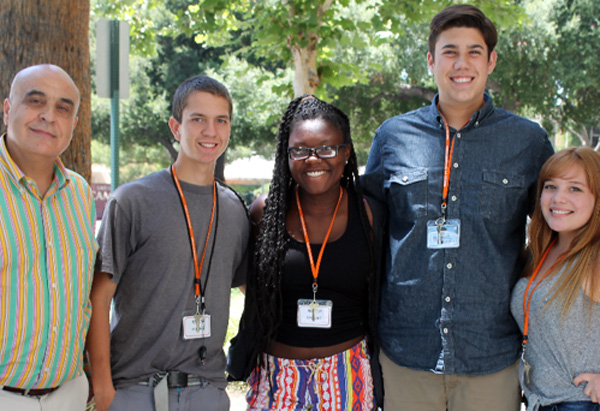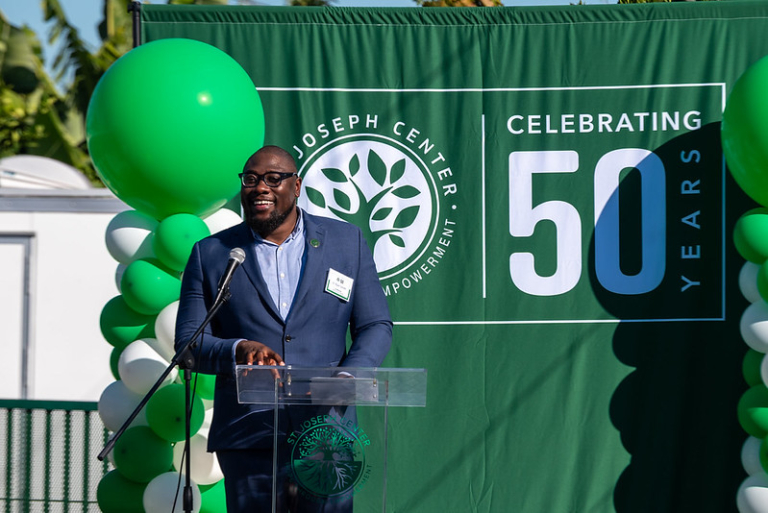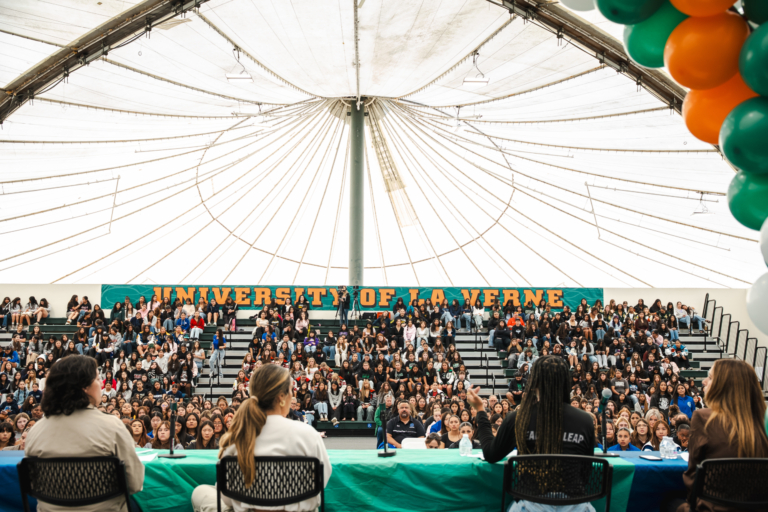REACHing Their Full Potential

A summer business-learning program offered by the University of La Verne for high school students got the wheels turning in the heads of five of them. They created the fictitious Keale Bike Co. and devised a detailed and complete start-up business plan for a bicycle sharing system for a college campus.
The result was a $1,000 prize as winners of a competition during the university’s ninth annual REACH Business Camp.
The model for the winning team was the New York City system that launched in May 2013. It involves 6,000 bicycles and 330 docking stations. The REACH winners came up with a plan for similar system for the Cal State Long Beach campus that would have 1,500 bikes and 75 docking stations. The cost of using the bikes would be $15 per month.
The group chose Cal State Long Beach because of the size of the campus and its lack of an on-campus transportation system.
Luis A. Torres, who served as the general manager of a fictitious company, said: “We first looked at UCLA. That school already has a pretty elaborate on-campus system, so we then called Cal State Long Beach. The people there were more receptive.”
Torres, the son of immigrant farm workers, is between his junior and senior year at Diamond Ranch High, which is part of the Pomona Unified School District and serves Diamond Bar and Phillips Ranch.
His “business partners” were Andrew Lopez of Charter Oak High in Covina, Angelica Ramirez of Northview High in Covina, Elizabeth L. Soto of Ganesha High in Pomona and Kimberly Reyes of L.A.’s Garfield High. All five are potentially first-generation college students, meaning no one in their immediate families has attended college.
“Our first idea was a hang-out for teenagers,” Torres said. “Then Andrew, who was in New York last summer, suggested bike sharing on a college campus. After UCLA we picked Cal State Long Beach because Elizabeth’s cousin went there.”
They got the idea for the name of their fictitious company because Keala represents the first initials of the five partners.
The five students were among 52 who participated in the recent three-week summer REACH Business Camp. The students, who are all between their junior and senior years, were divided up into 10 groups at the start of the camp. Toward the end of the camp, each group presented a detailed business plan for a fictitious start-up enterprise to a panel of judges. Each plan included an elaborate slide presentation.
There was a preliminary round, then a Final Four. There were 24 judges for the daytime preliminary round, 13 for the evening Final Four competition the following day in the La Fetra Lecture Hall. The winners were announced at a graduation ceremony held in front of a capacity crowd in the Morgan Auditorium on Friday, June 27.
In addition to the $1,000 won by the Keala team, a group named Smoove, which had some novel ideas about marketing smoothies, earned $500 as the runner-up in a competition that was deemed “very competitive.”
The participating students generally come from the Pomona, Chaffey, Covina and Rialto school districts, although this year three came from Garfield High of the L.A. Unified School District.
“I heard about the program and looked into how we could get some of our students involved,” said Guillermo Gonzalez, a math teacher at Garfield.
He contacted Dr. Issam Ghazzawi, an energetic professor of management in the University of La Verne’s School of Business who heads the program and works with the districts in getting the word out to potential applicants.
Dr. Ghazzawi says the goal of the REACH program is to reach out to students who otherwise might not be considering higher education – and help them “reach” their potential.
It’s working. Nearly half of the applicants accepted for the program say that at some point college was not in their plans for one reason or another. At the end of this three-week camp, 98% say they plan to continue their education. The average over the past eight years for those who actually go on to college among 423 participants is around 84%, according to Dr. Ghazzawi.
To qualify for the camp, a student must potentially be a first-generation college student, have a minimum grade-point average of 2.5, and be involved in some extra-curricular activities that preferably involve community service. Other qualifications include an interest in pursuing higher education while at the same time be at risk of not going on to college because of financial issues, family commitments or other similar situations.
Angelica Ramirez of the winning Keala team said her parents were both high school dropouts. Her mother works as a janitor, her father works in a hardware store.
Case Brinksma of Montclair High headed up the runner-up Smoove team and was one of the most impressive speakers. His parents are EBay traders, meaning they look for bargains on the website and then try to sell the items at a profit.
“There were ups and downs during the camp, but looking back at the overall experience, it was very rewarding,” Brinksma said.
Hannah Johnson, a varsity cheerleader at Charter Oak High who made it to the Final Four, lives with her mother, who is on disability, and a 24-year-old brother who works as a security guard. Her mother was an L.A. County employee, working on special projects, until a wrist injury and carpal tunnel syndrome incapacitated her.
Elizabeth Lira of Northview, another finalist, lives with her mother and younger brother. Her mother is a manager at a Chili’s restaurant in Whittier.
Many of the students have big plans despite any family hardships. Torres, the general manager of the Keala team, said that prior to the camp he was planning on pre-med in college. “Now I’m thinking more along the lines of something that involves both the medical field and business,” he said.
Christian Campis of Covina High said, “I’m leaning toward being a pediatrician.”
During the camp, the students live in dorms, except for the first weekend, and follow a full schedule, which includes not only classroom work, lectures and guest speakers but also some fun things.
They went to a Rancho Cucamonga Quakes baseball game, took field trips to the Metropolitan Water District facility in Hemet and Southern California Edison in Irwindale, and attended a concert at the Hollywood Bowl.
Accepted for the camp from hundreds of applicants, students pay nothing. The cost is paid for by the school of business with much of the money coming from a Title V grant and donations from individual and corporate sponsors. And a number of faculty members donate their time to teach classes at the camp.
“Every year I am impressed with the students’ willingness to learn,” said Dr. Kevin Marshall, a professor of law in the university’s law school and professor of economics and finance in the business school. “Their interest in understanding business and economics has left me with the impression that they leave my class aspiring to learn more and pursue that in college.”
Dr. Yehia “Ben” Mortagy, professor of information technology and decision science, said: “This is one of the most rewarding experiences I do. I try to introduce these high school students to what college is all about – college life and the benefits of getting a college degree that could change their lives.”
Many of the camp participants start out attending junior college, mainly because of financial concerns. But some go on to excel at a major four-year school. Yasir Motawala got a degree in economics from UC Berkeley in 2013. Corey Price just graduated from Arizona State with a degree in sociology.
Fatema Kahel, who just got a degree in neuroscience from UCLA, was a guest speaker during a special breakfast on the first day of the current camp. The breakfast featured motivational speaker Kenneth B. Morris Jr. of Corona, who teaches a course in “liberation theology” at the University of La Verne. Morris is the great-great-great grandson of Fredrick Douglass and the great-great grandson of Booker T. Washington, two of the most respected men in American history.
Morris delivered a powerful message in a thought-provoking and informative 25-minute speech, telling the students that “knowledge is power,” and they had to opportunity to “go on to great things.”
Story by Larry Stewart


